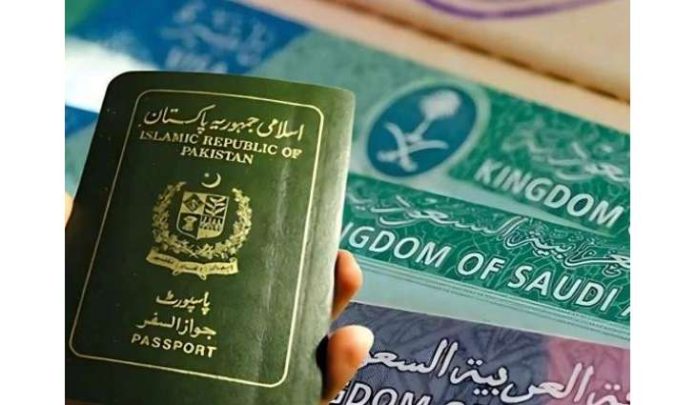Saudi Arabia has stopped the issuance of blockwork visa quotas to Nigeria and six other African countries.
The country announced the temporarily suspension as part of a broader policy shift aimed at regulating labour inflows during the peak pilgrimage season.
The suspension also affects Egypt, Algeria, Sudan, Ethiopia, Tunisia, and Morocco, alongside seven other countries: Indonesia, Iraq, Jordan, Yemen, India, Pakistan, and Bangladesh. In total, 14 nations are impacted by the directive issued by Saudi Arabia’s Ministry of Human Resources and Social Development.
Blockwork visas are quota-based permits that allow Saudi employers to hire a specific number of foreign workers. Once approved, the quota enables businesses to apply for work visas for designated individuals. The current suspension affects both new and pending applications under this system.
The move, which will remain in place until the end of June 2025—coinciding with the conclusion of the Hajj pilgrimage—forms part of the Kingdom’s efforts to bolster regulatory oversight of its immigration and labour systems. While the ministry has not publicly stated a specific reason for the freeze, it aligns with Saudi Arabia’s ongoing Saudization policy. This initiative mandates increased employment of Saudi nationals, particularly in sectors such as tourism, with stricter quotas expected between 2026 and 2028.
As a result of the suspension, employers will not receive new block visa quotas for workers from the listed countries. Furthermore, those with pending visa applications may face denials or significant delays. Individuals who hold valid work visas but have not yet entered the Kingdom may also encounter entry restrictions.
Saudi Arabia remains a significant destination for African migrant labour, particularly in domestic and low-wage sectors. According to a 2022 report by the Gulf Labour Markets, Migration and Population programme under the Gulf Research Centre, over 10,000 Nigerians were employed in Saudi Arabia at the time. Egypt led the African bloc with more than 837,000 nationals working in the Kingdom, followed by Sudan with 354,988, Morocco with 18,023, Ethiopia with 16,719, Tunisia with 12,311, and Algeria with 2,001.
Migrant workers in Saudi Arabia have long faced systemic challenges, including exploitation, abuse, and limited legal protections. Human rights organisations have repeatedly criticised the Kingdom’s Kafala (sponsorship) system, which gives employers broad control over foreign workers’ legal and employment status, often making them vulnerable to mistreatment.
The latest suspension adds to growing concerns about the treatment and future of migrant labour in the Gulf, particularly in the run-up to the 2034 FIFA World Cup, which Saudi Arabia is set to host.






